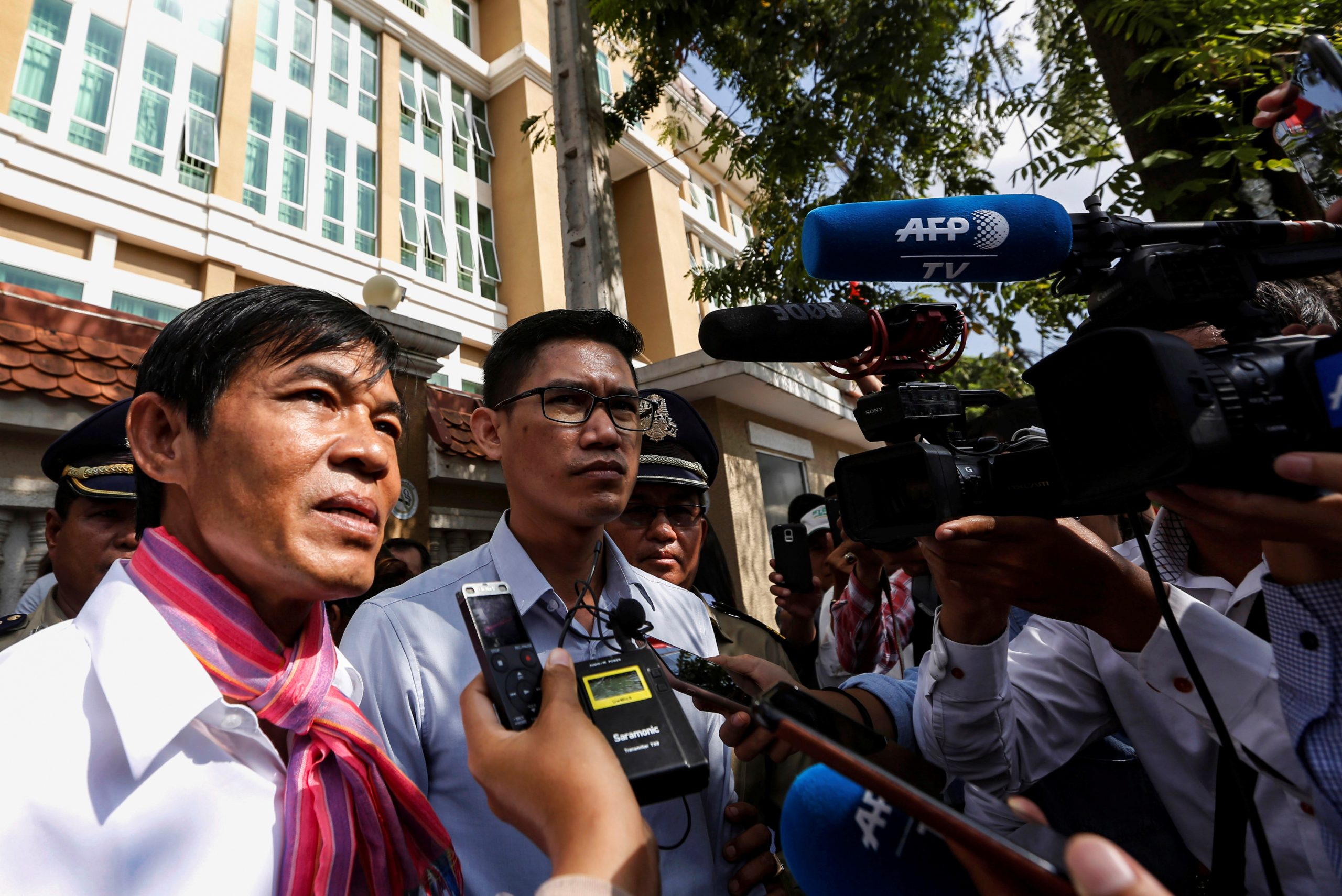The Clooney Foundation for Justice’s TrialWatch initiative has monitored all public trial hearings in the Cambodian government’s prosecution of former Radio Free Asia (RFA) journalists Uon Chhin and Yeang Sothearin.
Today, in advance of an appeal in their case and the European Commission’s consideration of Cambodia’s continued eligibility for the Everything But Arms trade preference program, TrialWatch is releasing a TrialWatch Fairness Report identifying serious human rights violations in the ongoing proceedings.
In 2017, after RFA shut down its Phnom Penh operations due to a government crackdown on the media, Cambodia arrested the defendants on November 14th, and charged them with espionage, an offense carrying a sentence of up to 15 years in prison. After two substantive hearings and the testimony of eleven witnesses, the government produced no evidence to support the charges. Rather than acquitting the journalists, the court ordered an open-ended investigation into issues the government knew about from the start—leaving the journalists in legal limbo.
The TrialWatch Fairness Report by the American Bar Association Center for Human Rights and Professor Goran Sluiter finds that: (1) “the proceedings against Mr. Chhin and Mr. Sothearin contravened their right to freedom of expression”; and, (2) the court’s conduct of their trial to date “evinced bias, as it appeared to improperly promote the interests of the prosecution over the interests of the defense.”
Additional Analysis and Call to Action
The TrialWatch Fairness Report concludes that Cambodia violated Chhin and Sothearin’s fundamental rights at each stage of the proceedings, including because:
- The investigating judge placed Chhin and Sothearin in pretrial detention for over nine months without justification. The journalists were initially denied access to counsel and then detained in inhuman conditions that seriously affected their health.
- Throughout the trial, the presiding judge “appear[ed] to act more as an arm of the prosecutorial team rather than a neutral truth seeker,” refraining from asking questions that would expose holes in the government’s case and permitting prosecutorial misconduct. For instance, when a police officer testifying in support of the prosecution struggled to answer basic questions, the judge permitted a second officer to whisper answers into his ear.
- Most recently, the trial court’s order permitting a second investigation into Chhin and Sothearin’s conduct absent any evidence of guilt was inconsistent with the journalists’ right to the presumption of innocence.
As CFJ has previously stated, in Chhin and Sothearin’s case, the Cambodian Prosecution Service and judiciary are not enforcing the law but functioning as a tool to silence the press. The government’s decision to pursue this case indefinitely despite no evidence of espionage will further chill freedom of expression in Cambodia.
CFJ calls upon the Phnom Penh Court of Appeal to dismiss the espionage charges. The Prosecution Service should never have brought charges against Chhin and Sothearin on the basis of such little evidence; nor should the court have continued to investigate them after the prosecution failed to establish their guilt at trial. Any result other than a dismissal will only reinforce concerns that the proceedings against Chhin and Sothearin serve political purposes.
